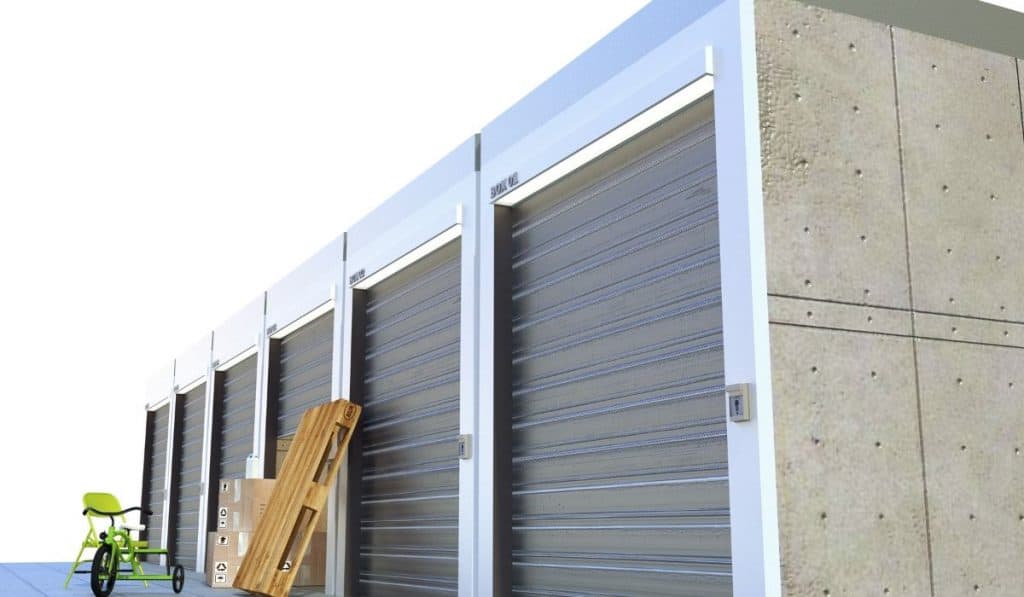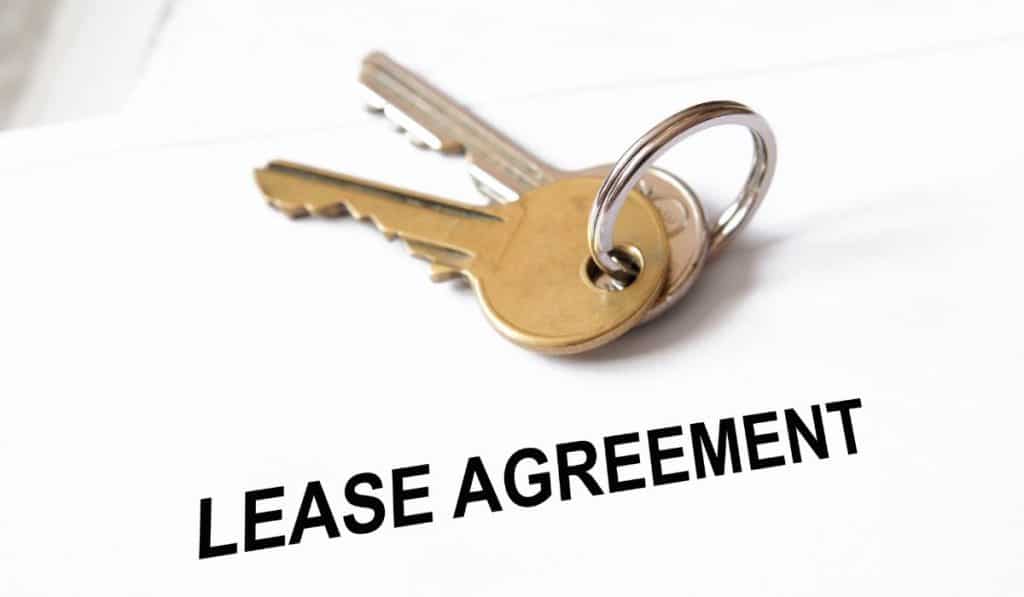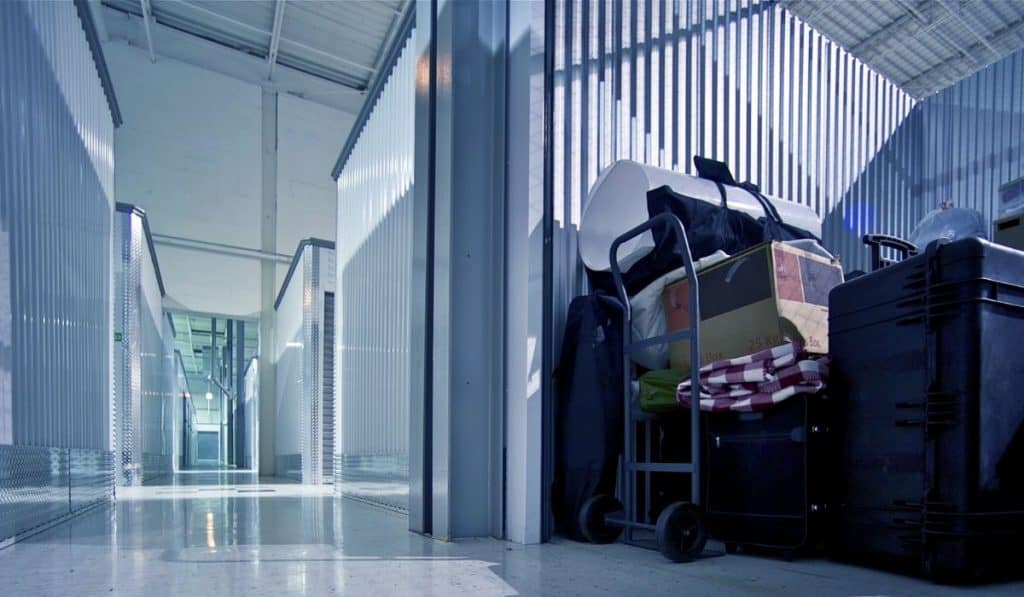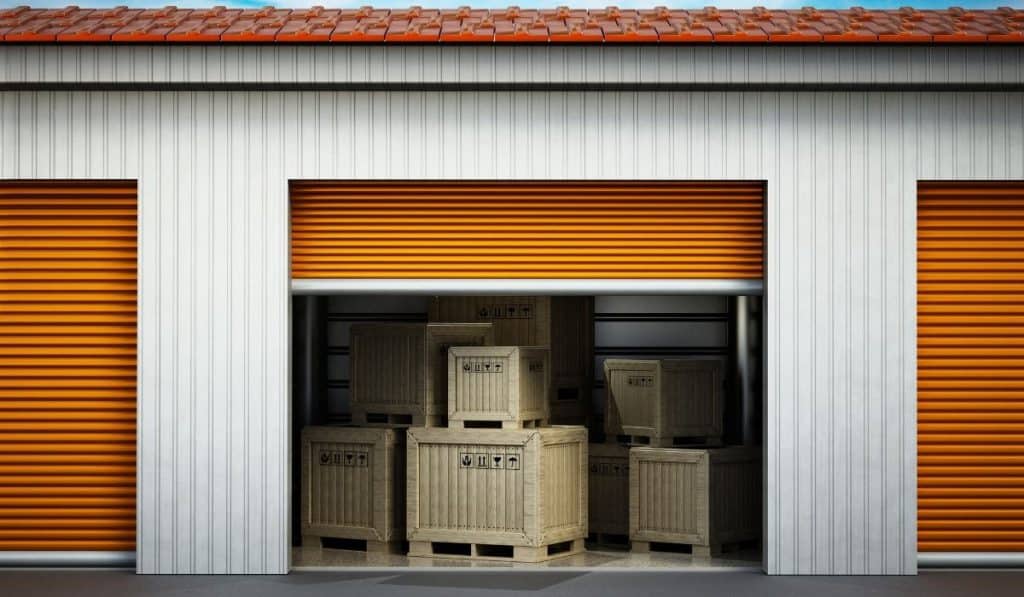Everyone has probably seen television shows that highlight the auctions that happen at storage facilities. In your typical scene, you have a bunch of pawnshop owners, property developers, and curious individuals circled around the property in a bidding war for whatever is inside. They’re hoping to make a score, and the premise of the show hinges on finding unseen treasures that can be sold for profit.
But what is the reality of situations involving abandoned storage units or storage units severely behind on payments? Can a storage facility sell your stuff?
A storage unit facility can sell your stuff or discard whatever is inside your unit if you’re behind on payments for several months in a row. The facility owner or management must, however, follow the local laws concerning notices and follow the rules of the lease that both of you signed.
Let’s explore some information about storage units and when they can sell your stuff or discard what’s inside a storage unit.
The Lease Exists for Both Parties
An important thing to remember is that the lease exists for tenants and the storage facility managers. A good lease sets hard guidelines both parties must follow to be in good standing.
Part of that is paying rent. Before you sign the dotted line on a storage facility, you should understand what exactly will happen if you get behind on your payments.
Most leases will outline what will happen in terms of late fees, how late you can go before the eviction process, and any other actions the management team may make to try and collect late payments.
As the tenants your obligation, among others, is to pay rent and pay it on time. If you don’t, you violate your lease and, if late for several months, you can be subject to eviction.
Most Storage Facilities Want to Work Out a Solution
Selling a tenant’s possessions in an auction or discarding them is typically the last option. Storage unit managers and facility owners don’t want to do it.
They would much rather work with a late tenant than have to evict someone, clean out the items, refurbish the unit, and start all over again with someone new. That’s a huge drain on resources because finding new tenants can mean a unit sits vacant for months and the money that is spent on advertising and other costs of booking a unit.
If you or someone you know is behind on payments or something in your financial situation has changed, reach out to the storage facility as quickly as possible and explain what is going on. Perhaps you can work out a payment plan to bridge you through whatever you’re dealing with.
However, if the facility doesn’t hear from you, the chances that they will sell your stuff increase significantly. They have carrying costs as well, and leaving a unit open without income hurts their ability to pay for things like a commercial mortgage, facilities, employee salaries, and other costs.
The Typical Timeline Before a Storage Facility Sells Your Stuff
A storage unit facility isn’t going to sell your stuff if you’re a day late. They won’t even do that if you’re a couple of weeks late. However, they may start the process that soon if a tenant is consistently late on their payments.
For a storage unit to start the process of selling your stuff, you must be in default. That means you have to be anywhere between 5 and 30 days late. Most rents are due on the first (or on the monthly anniversary of your move-in date), and you have a grace period of a set number days before your payment is considered late.
Some storage units will lock the gate if you’re past the grace period. They’ll reopen it once your back rent is paid, but technically it’s their right because the tenant violates the lease terms.
Once in default, the storage facility has to send at least one letter in the mail or in-person that outlines what action is being taken and how much is owed to get the unit back in good standing.
Before they sell your stuff, the storage facility must post public notice of the auction.
This can be done online, posted near the storage facility on a billboard or a news board, or published in a local newspaper. Some facilities take out an ad in the newspaper and then post the ad on their office door.
The time from when a tenant is in default and the auction takes place is usually anywhere from 30 to 90 days. Time will vary on how quickly the management team moves, and sometimes states outline exactly when auctions can take place.
What Happens with the Money?
A big misconception about collections and late payments on storage units is that they can take whatever is in your storage unit, sell it, and keep all of the money. In most cases, that isn’t true.
Storage facilities that sell your stuff can only use the proceeds of any sale to pay what you owe them. They take the profit of selling items and deduct from it what’s needed to pay your late rent, any repairs, and other costs associated with late fees.
Then, if there’s any money left over, the facility must make efforts to return it to you, the former tenant. You will only have a certain amount of time to claim that money, though, and there are limits to the lengths the storage facility owner and management will go to make sure you get the money.
The onus is on you to track it down and claim what’s yours.
The claimant period can range anywhere from months to years depending on where the unit is located. Look up your local laws regarding claims and find out how much time you have.
What About Unclaimed Property?
Late rent payments aren’t the only situations that lead to sold storage units. When storage units are abandoned, facilities often sell the contents at auction to cover the costs of removing them as well as any payments owed.
This can happen if someone renting a storage unit dies or moves away and loses communication with the storage facility. In the case of someone passing away, the family can claim the contents of the unit.
In general, the same rules apply to deceased tenants as they do to late tenants. Once the unit is in default, management will move on to mailing and posting notices to begin the process.
If you have a family member or a friend who has passed away and you know they rent a storage unit, call the storage unit facility to notify them of what’s happened. They can work with you on a solution to either take on the contract or remove the items before they are sold.
If there is no next of kin, the items will be sold at auction and proceeds held for the appropriate claim period before the facility claims ownership of the profits.
Storage Facilities Will Generally be Flexible
Remember, storage unit owners and managers would likely rather work something out with well-intentioned tenants than take a gamble on someone new.
If you’ve run into financial hardship and are having trouble meeting rent obligations, talk to your storage unit facility about what’s going on. There is a good chance they will try to work something out with you, like a payment plan to keep you in the unit and avoid selling your stuff.
The sooner you contact them, the more willing they will be to work with you on a solution. Hopefully, you can get back on track and won’t have to deal with moving your things or terminating your lease.







